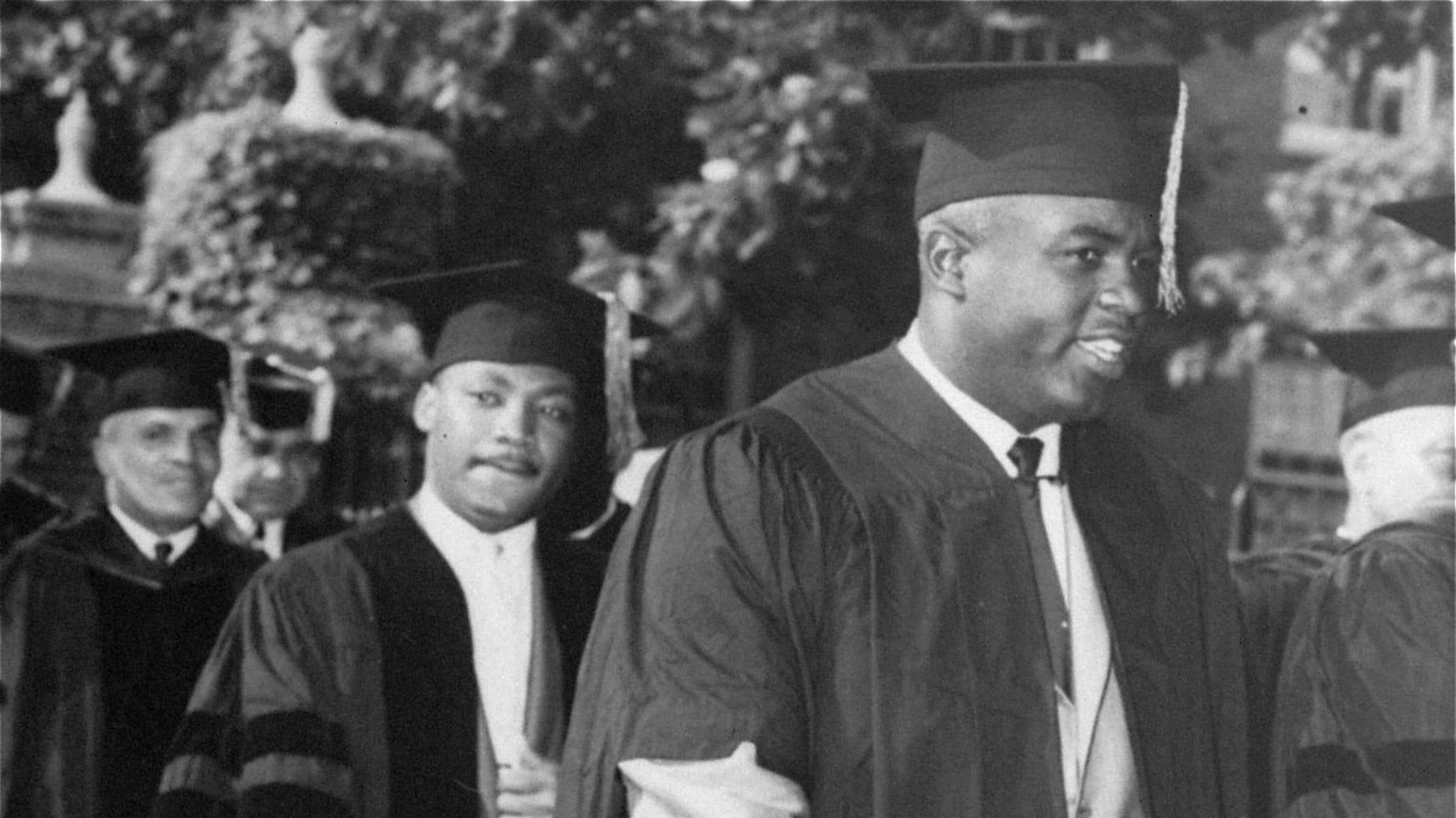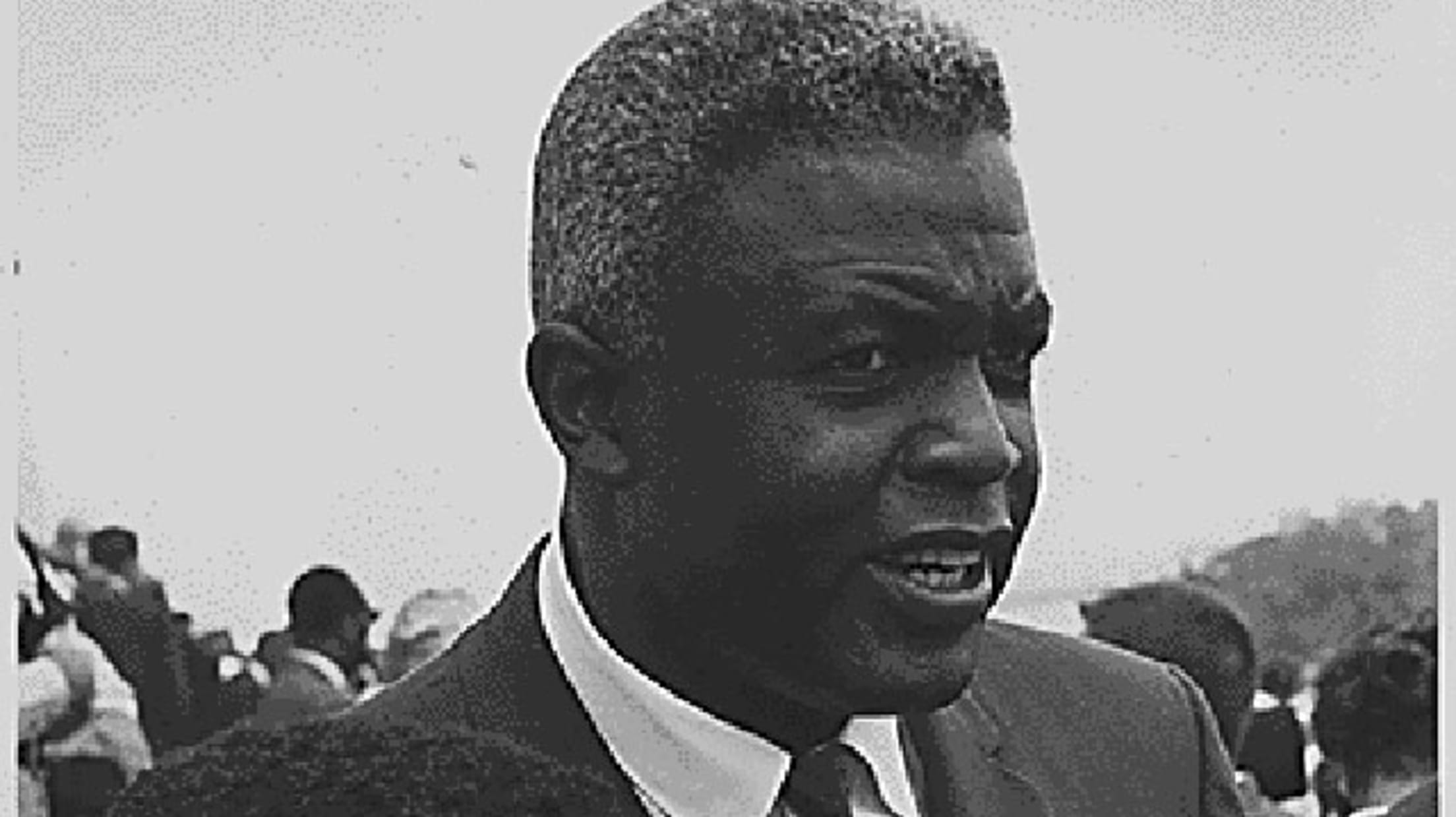Martin Luther King Jr. and Jackie Robinson: Friends and civil rights icons

Dr. Martin Luther King Jr. had a dream that his four little children would "one day live in a nation where they will not be judged by the color of their skin, but by the content of their character."
When King gave that righteous and impassioned address on the steps of the Lincoln Memorial on Aug. 28, 1963, Dodgers great Jackie Robinson stood just feet away, looking on with his children.

Robinson and King became close friends as they both dedicated their lives to fighting injustice. Not satisfied with merely breaking baseball's color barrier in 1947, Robinson became even more involved in the civil rights movement after he retired in 1957, shortly after having been traded to the Giants.King encouraged Robinson's involvement, saying that he was:
"... a pilgrim that walked in the lonesome byways toward the high road of Freedom. He was a sit-inner before sit-ins, a freedom rider before freedom rides."
Later in '57, Robinson and King kind of, sort of graduated together when they were awarded honorary doctorates of law at Howard University's commencement ceremony in June, as shown above.
In September 1962, Robinson delivered an address to the Southern Christian Leadership Council at its annual Freedom Dinner in Birmingham, Ala. Robinson praised King in his remarks saying:
"People used to tell me a lot of things about Dr. King, that he was trying to take over the world, that he was making money on the civil rights issues. I didn't believe them, of course. I knew this was a dedicated man and that he has made tremendous personal financial sacrifices in the cause. I sort of wondered why people would stoop to talk about him. Then I realized that the world has always talked against great men. The best way to keep from getting talked about is to do nothing."
Great men they were, and their friendship grew to match their individual statures. When King and other civil rights activists were jailed for their protests, the Robinson family hosted a jazz concert at their home in Stamford, Conn., to raise bail money. When King's march in Selma became the tragic event now known as "Bloody Sunday," Robinson sent a telegram to President Lyndon B. Johnson urging him to intervene to stop the violence.
Even the Vietnam War -- one of the most divisive issues of the 1960s -- couldn't come between King and the Hall of Famer. While they agreed to disagree on the war itself, their difference of opinions actually brought them to a new level of mutual respect.
They remained great friends and, shortly before his assassination in April 1968, King spoke to another Dodgers great -- former pitcher Don Newcombe -- saying:
"You'll never know how easy you and Jackie and Doby and Campy made it for me to do my job by what you did on the baseball field."



